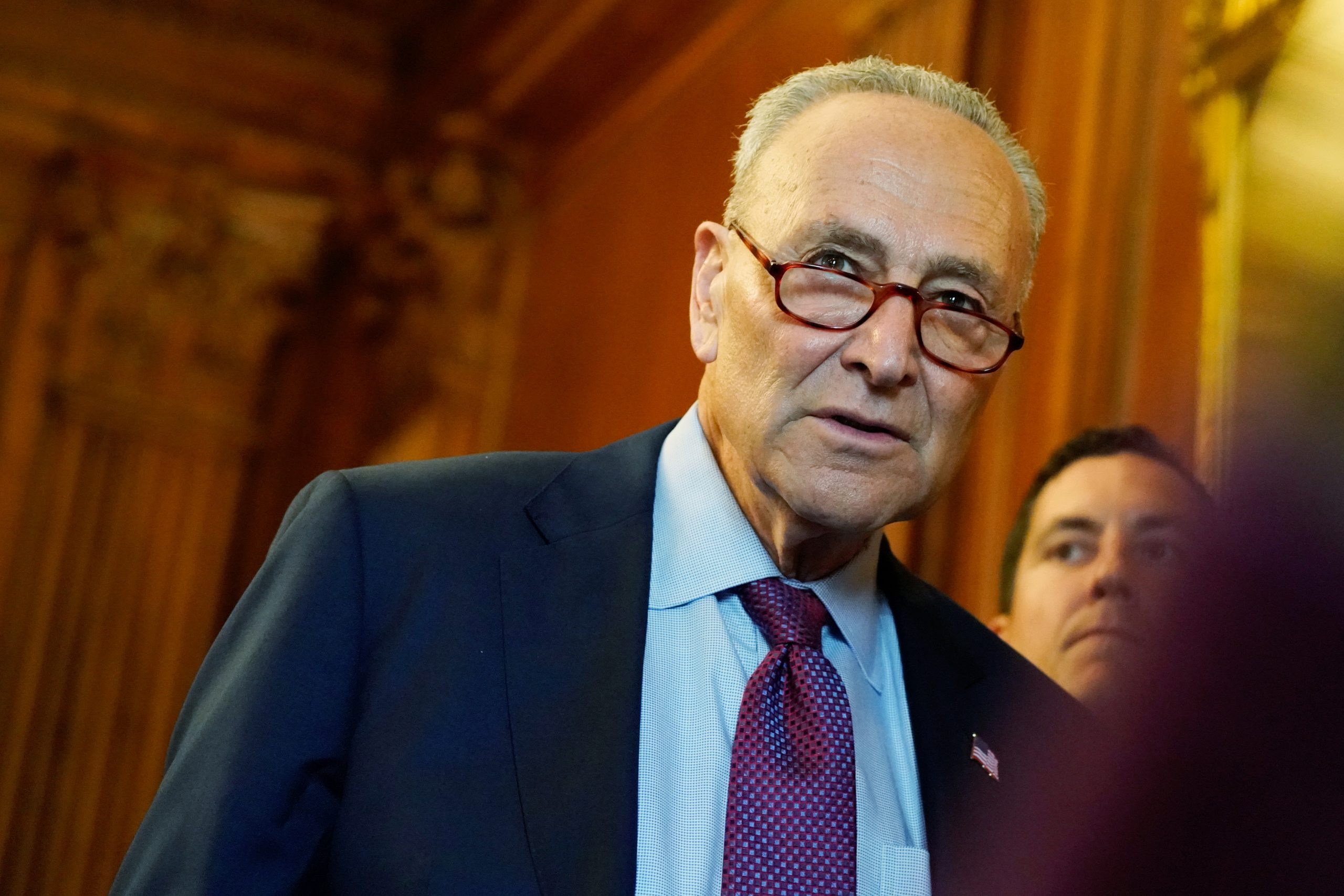
Michael Cardinal, FISM News
[elfsight_social_share_buttons id=”1″]
On Monday, House Speaker Nancy Pelosi (D-Calif.) and Senate Majority Leader Chuck Schumer (D-N.Y.) announced their plan to bring a bill to Congress that would partner a suspension of the debt ceiling with a spending bill that is needed to avoid a government shutdown.
Their statement initially reads that they would be passing a bill to ensure that would temporarily avoid a shutdown:
This week, the House of Representatives will pass legislation to fund the government through December of this year to avoid a needless government shutdown that would harm American families and our economic recovery before the September 30th deadline. Both Republicans and Democrats have priorities they want to see addressed in the regular order appropriations process for Fiscal Year 2022, and an extension of government funding through December will provide an appropriate amount of time for that bipartisan, bicameral process to come to completion.
However, the statement then goes on to tie in the suspension of the debt limit to the same bill saying:
The legislation to avoid a government shutdown will also include a suspension of the debt limit through December 2022 to once again meet our obligations and protect the full faith and credit of the United States.”
In combining these two priorities they have challenged Republicans to a standoff over the debt ceiling.
Senate Minority Leader Mitch McConnell and other Republican lawmakers have repeatedly said that they will not vote to increase or suspend the limit as it would essentially be signing a blank check for the Democrats as they seek to push through their aggressive $3.5 trillion reconciliation budget.
Democrats do not get to ram through radical, far-left policies on party-line votes, brag about how they are transforming the country, but then demand bipartisan cover for racking up historic debt.
As I've said since July, they will need to address the debt limit themselves.
— Leader McConnell (@LeaderMcConnell) September 20, 2021
Treasury Secretary Janet Yellen warned in an op-ed in the Wall Street Journal on Sunday that if the debt limit is not raised or suspended soon that it “could trigger an unprecedented financial crisis in the U.S.” She pleaded that Congress make some move on the matter when they resumed their session on Monday.
McConnell commented on the mounting pressure from Democrats to collaboratively suspend the ceiling saying that the Democrats could pass the bill without the help of Republicans in the same way they planned to do with the budget bill:
Since Democrats decided to go it alone, they will not get senate Republicans’ help with raising the debt limit. I’ve explained this clearly and consistently for over two months. We do not have a divided government, Democrats do not need our help
But top Democrats seem determined to make the suspension of the debt ceiling a bipartisan effort, theoretically because they do not want it to be used against them during the mid-term elections. However, House Democratic Whip Rep. James Clyburn told CNN’s Jake Tapper that they may need to go it alone, as he does not believe that the Republicans will relent.
In the letter Pelosi and Schumer call out Republicans for their refusal to partner with them saying, “The American people expect our Republican colleagues to live up to their responsibilities and make good on the debts they proudly helped incur in the December 2020 ‘908’ COVID package that helped American families and small businesses reeling from the COVID crisis.” Near the end of the letter it further calls out Republicans saying, “a reckless Republican-forced default could plunge the country into a recession.”
According to The Hill, McConnell said that he would support a short term spending bill that would prevent a government shutdown, but only if it was divorced from a suspension of the debt ceiling:
Senate Republicans would support a clean continuing resolution that included appropriate disaster relief and targeted Afghan assistance. We will not support legislation that raises the debt limit.”
Government funding is set to expire on Sept. 30 when the fiscal year turns over, and if neither side budges it could result in the third government shutdown in the last ten years.
